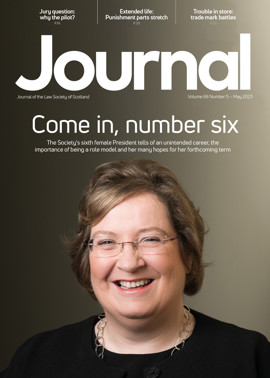Employment: Must do better – the s 23 approach
In the last couple of months, the Equality & Human Rights Commission (“EHRC”) has entered into s 23 agreements with McDonald’s and IKEA UK. Each attracted significant press coverage. In this article, we discuss the legal context of this type of agreement.
The EHRC is a regulatory body which oversees and ensures compliance with the Equality Act 2010. Its responsibilities comprise “reducing inequality, eliminating discrimination and promoting and protecting human rights”.
It has various enforcement powers at its disposal, including investigatory powers; the ability to impose unlawful act notices and action plans and to apply for injunctions or interdict; as well as litigation powers, such as providing legal assistance or intervening in legal proceedings brought by others. The EHRC can also enter into voluntary binding agreements with employers. These are known as s 23 agreements as they are based on the powers in, surprisingly enough, s 23 of the Equality Act 2006.
Section 23 agreements
Under s 23, the EHRC may request that an organisation which is suspected of having committed an unlawful act, enter into a voluntary binding agreement not to commit further unlawful acts. In exchange, the EHRC agrees not to pursue enforcement action. Where there are concerns about the possibility of the EHRC taking more stringent action, this route can be seen as a helpful compromise. However, even with a s 23 agreement in place, it is still open to the EHRC to apply to a court for an interdict, or to commence a formal investigation. Entering into a s 23 agreement saves an organisation from the cost of facilitating a formal investigation or preparing for litigation.
When an organisation enters into a s 23 agreement, it does so with a view to working collaboratively with the EHRC, on a no admission of liability basis, minimising the chance of more formal action being taken. That said, the prospect of entering into such an agreement can still be very unattractive for businesses. Details of the agreement are published on the EHRC’s website; this tends to attract adverse publicity. Sometimes it can be possible to reach agreement with the EHRC to follow an alternative action plan that remains confidential, particularly where genuine improvement steps have already been taken.
The agreement will generally include an “action plan” for the organisation, to address issues related to the suspected unlawful conduct. The organisation commits to implement this plan over a set period. If the EHRC suspects that an organisation has failed, or is unlikely, to comply with its obligations under the agreement, it may apply to the court for an order requiring compliance.
The McDonald’s agreement
In response to concerns from the EHRC about how sexual harassment complaints made by UK McDonald’s staff had been handled, on 9 February 2023 McDonald’s signed a s 23 agreement. While the total number of complaints made against it in the UK is not known, in 2019 the Bakers, Food & Allied Workers Union suggested the number of reported cases might exceed 1,000.
McDonald’s has committed to communicating a zero-tolerance policy towards sexual harassment; launching an anonymous survey about workplace safety; and enhancing its policies and procedures which seek to prevent sexual harassment (including improved response procedures on receipt of any complaints). Specifically, McDonald’s has committed to implementing anti-harassment training for all employees, specialised training for managers to help them identify risk areas within individual restaurants, and practical support for franchisees through provision of training materials, as well as actively monitoring progress to ensure a safe and inclusive working environment is achieved.
The IKEA agreement
More recently, IKEA signed a s 23 agreement with the EHRC on 23 March 2023. Unlike the McDonald’s agreement, IKEA’s followed its handling of only one complaint which it received from a former employee. This related to sexual harassment and assault.
Under its agreement, IKEA will be obliged to express to all employees a zero-tolerance stance towards sexual harassment; review its sexual harassment policies, processes and complaints procedures in conjunction with an external specialist law partner; and deliver training on its new processes to all HR staff and line managers. The agreement is expected to be in place until August 2025 and the EHRC has noted that it will be continually monitoring IKEA’s compliance.
Looking ahead
A private member’s bill is being considered which would impose a duty on employers to take “all reasonable steps” to prevent sexual harassment of their employees. If the Worker Protection (Amendment of Equality Act 2010) Bill is enacted, it would place a greater proactive duty onto employers to ensure their employees are not subject to sexual harassment, including by customers and others outside the organisation. At the time of writing, the bill has progressed through the House of Commons and is now at committee stage in the House of Lords.
Whether or not the bill becomes law, all businesses should actively promote a no-tolerance approach to sexual harassment and take a proactive and strategic approach to any enquiries from the EHRC.
Perspectives
Features
Briefings
- Civil court: Spotlight on the Sheriff Appeal Court
- Employment: Must do better – the s 23 approach
- Human rights: Crime, detention and mental health issues
- Pensions: A question of tax
- Scottish Solicitors' Discipline Tribunal: May 2023
- Family: The slide rule of grave risk
- In-house: A route to diversity







